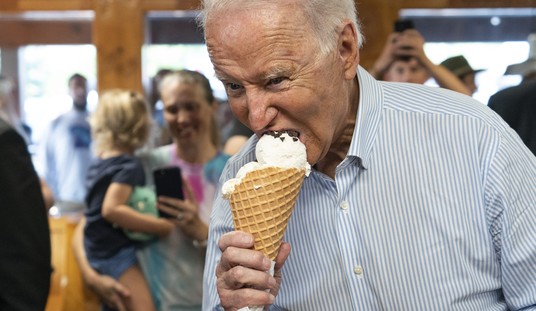The Republican-controlled House is currently operating under a moratorium on earmarking. But if several GOP earmarxists have their say, this will change in the near future.
Throughout the past decade, most of the arguments against earmarks have been focused on wasteful spending, corruption, cronyism, and self-ingratiating monuments. Robert Byrd’s monuments and the Bridge to Nowhere became symbols for such bad behavior. To that end, even some conservative advocates of earmarks have lodged a counterargument. They contend that earmarks are only “pocket change,” and that by declining to earmark specific funding bills, we are ceding more power to the Obama administration. In order to preclude any extravagant earmarks and cronyism, they are proposing reforms and limitations to the process that will supposedly put an end to things like the Bridge to Nowhere.
All of these arguments completely ignore the most potent problem with any and every form of earmarking. Ironically, it is the supporters of earmarks that have articulated the reason why earmarks must never be resurrected in Congress. Here are some quotes from a couple of big-government Republicans as cited in a widely circulated Reuters article last Friday:
In a closed-door meeting with fellow Republicans, [Mike]Rogers [R-AL] recommended reviving a proven legislative sweetener that became politically toxic a year ago.
Bring back earmarks, Rogers told his colleagues.
Few members of Congress have been bold enough to use the “e” word since both the House and Senate temporarily banned the practice last year after public outcries about Alaska’s “Bridge to Nowhere” and other pork barrel projects.
But as lawmakers wrestle with legislative paralysis, there are signs that earmarks – special interest projects that used to be tacked onto major bills – could make a comeback.
“I just got up … and did it because I was mad because they were talking about how we can’t get 218 votes,” Rogers told Reuters, referring to the minimum of 218 votes needed to pass legislation in the 435-member House.
“There was a lot of applause when I made my comments. I had a few freshmen boo me, but that’s okay. By and large it was very well embraced,” he added. […]
BRING BACK THE GREASE
Political analysts have long referred to earmarks, or “member-directed funding” as it is sometimes known, as the grease enabling legislation to move through Congress.
Republican Representative Steven LaTourette, an 18-year House veteran, said the earmark ban “has affected discipline” within the party. “You can’t get 218 votes (out of 242 Republican House members) and part of that has to be if you can’t give people anything (earmarks), you can’t take anything away from them.”
If a member of Congress agrees with 90 percent of a pending bill but is “uncomfortable” with the other 10 percent, “Sometimes taking care of your district (with earmarks) made up for that 10 percent,” he said.
Reps. Rogers and LaTourette have let the cat out of the bag. It’s not about the $500,000 earmark. It’s about the $500,000 earmark that is used to buy off a conservative vote for a $1 trillion omnibus or some other terrible transformational legislation.
Hence, the problem with the highway, farm, and energy bills of the past decade wasn’t the plethora of earmarks, per se; it was the underlying bill in each case. The earmarks are used as the magic “grease” to garner majority support for big-government legislation.
Pro-earmark conservatives who are worried about ceding power to the executive branch are credulously overlooking the broader implication of bringing back the practice. If the earmarking business is reinstated, we will never rally majority opposition against bad legislation promulgated by leadership. There might be a few dozen lawmakers, at best, who could resist the temptation for a personal sweetener in the bill, but we will never rally enough support to ever roll back the size of government. Earmarks are the unifying glue that binds together a statist governing majority.
Just imagine for a moment a scenario where leadership desires to pass an omnibus bill, debt ceiling hike, Ex-Im Bank extension, or highway bill. They will bake in enough earmarks in the committee process (even if the ban was retained after the committee stage) and pick off a number of members who would otherwise oppose the underlying bill.
Proponents of earmarks are correct when they assert that we should not focus on “a few pennies,” but rather on the main drivers of the debt. We agree, and that’s why earmarks must never return to the House.
Cross-posted from The Madison Project













Join the conversation as a VIP Member